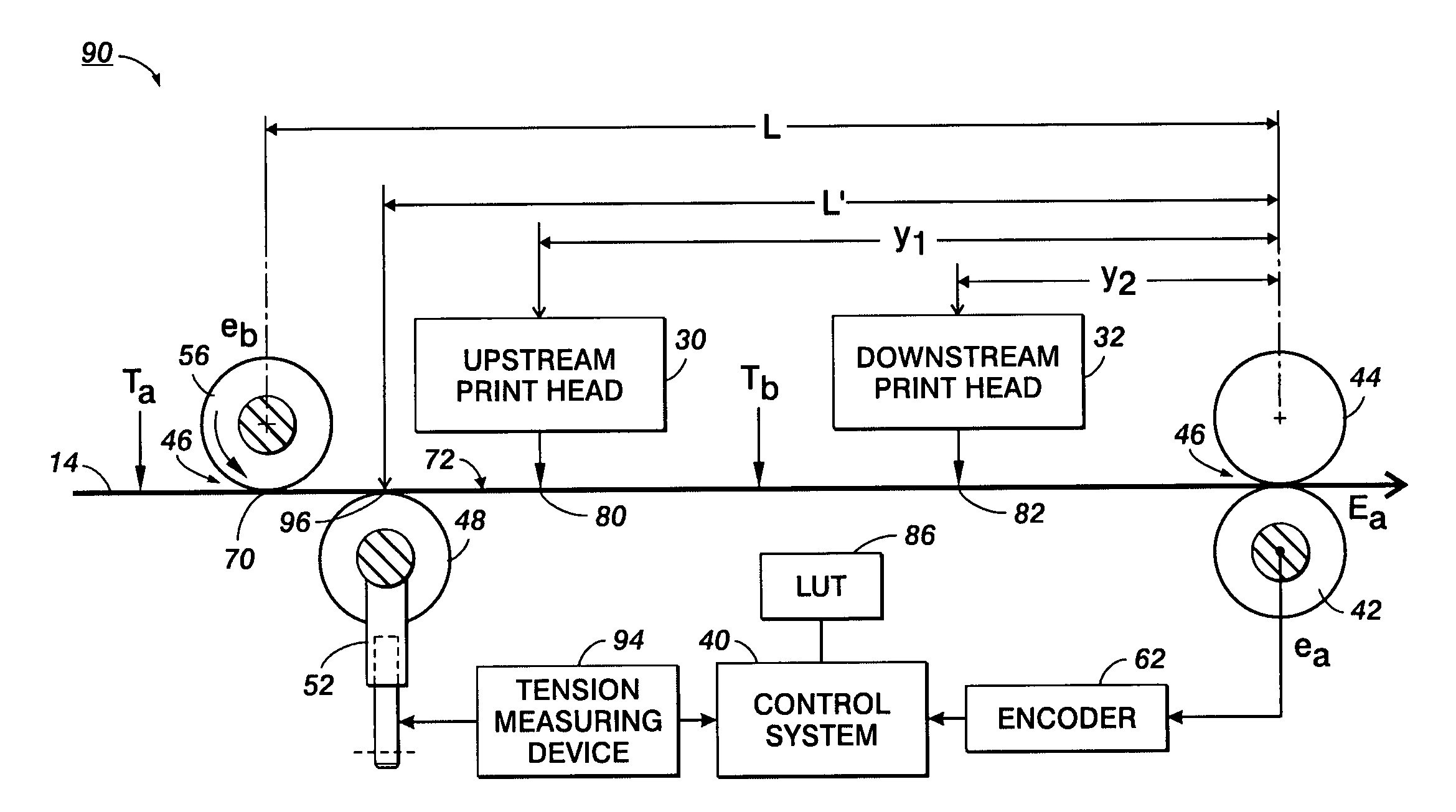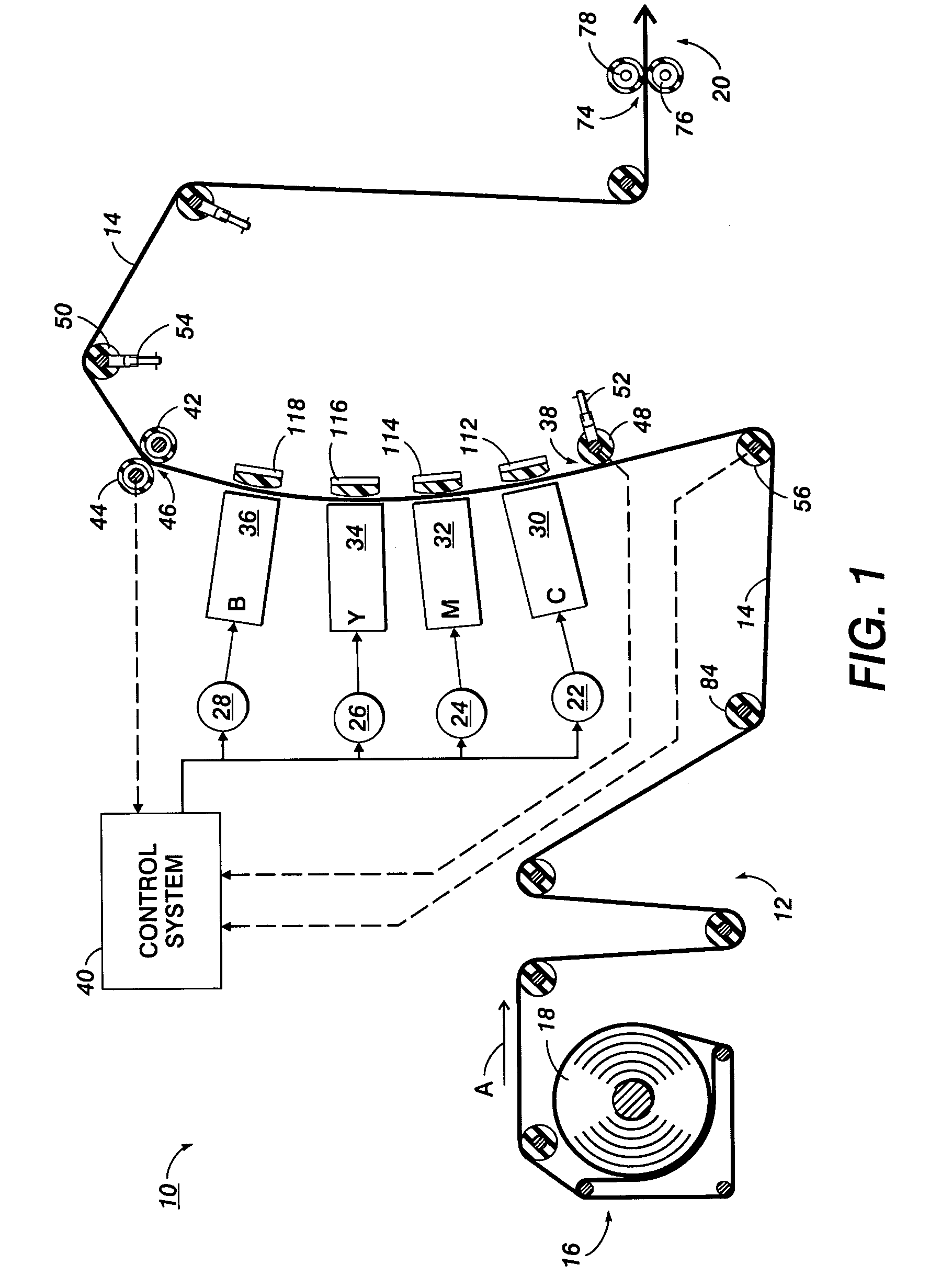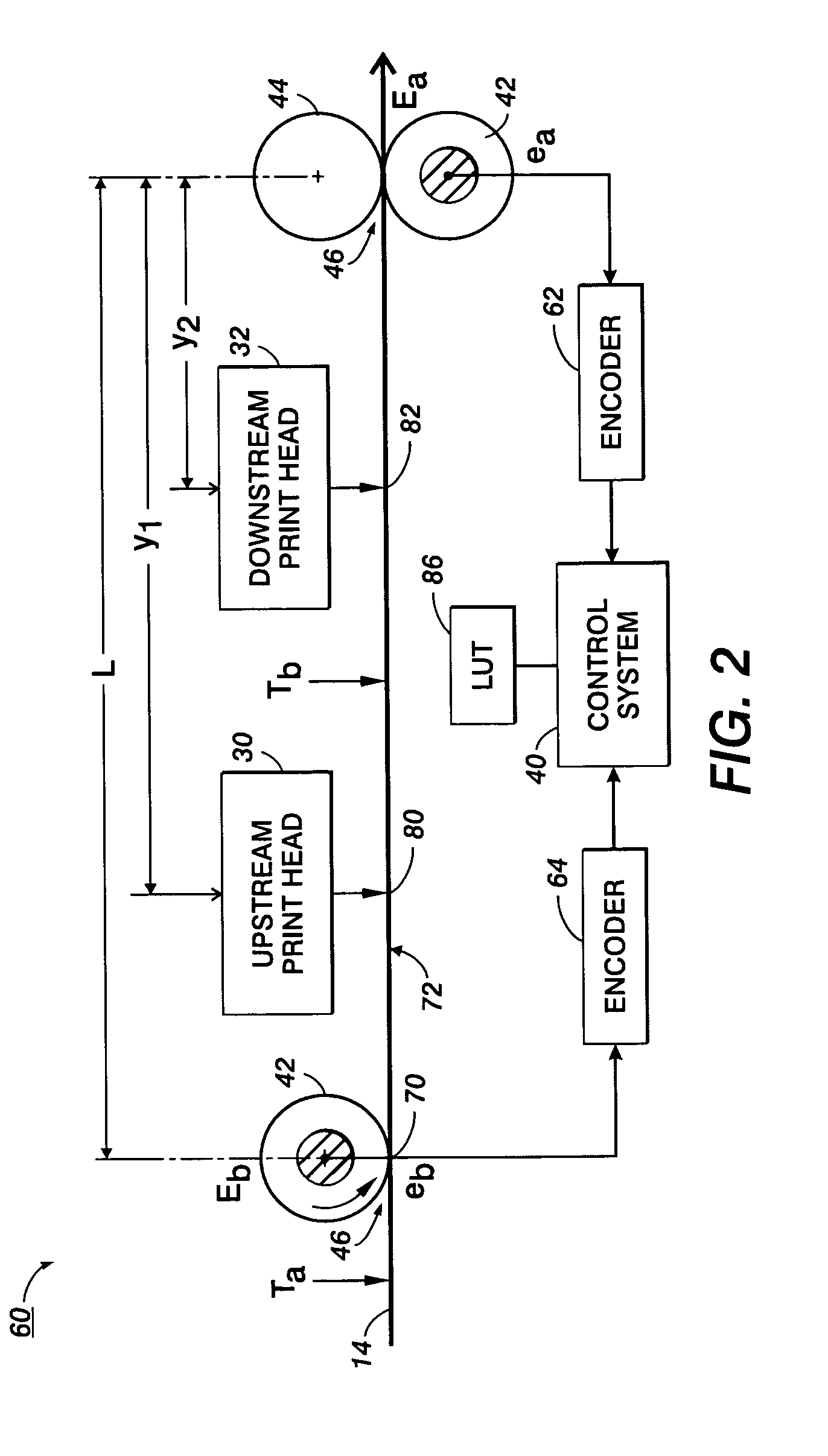Double reflex printing
a printing system and double-reflex technology, applied in the field of double-reflex printing, can solve the problem that the printing technique may still be subject to misregistration errors
- Summary
- Abstract
- Description
- Claims
- Application Information
AI Technical Summary
Benefits of technology
Problems solved by technology
Method used
Image
Examples
Embodiment Construction
[0018]Aspects of the exemplary embodiment relate to an imaging device and to a registration system for an imaging device. The imaging device includes an extensible image receiving member, such as a web or belt, which defines an image receiving surface that is driven in a process direction between marking stations. The process direction speed of the image receiving surface may vary over its length from a nominal set speed due, for example, to variations in stretch or deformation of the image receiving member and may vary over time due, for example to minor variations in the drive speed. The imaging surface thus has two degrees of freedom, defined by its speed and relative stretch in the receiving member.
[0019]The imaging device can include any device for rendering an image on print media, such as a copier, laser printer, bookmaking machine, facsimile machine, or a multifunction machine, all of which may generally be referred to as printers. The operation of applying images to print m...
PUM
 Login to View More
Login to View More Abstract
Description
Claims
Application Information
 Login to View More
Login to View More - R&D
- Intellectual Property
- Life Sciences
- Materials
- Tech Scout
- Unparalleled Data Quality
- Higher Quality Content
- 60% Fewer Hallucinations
Browse by: Latest US Patents, China's latest patents, Technical Efficacy Thesaurus, Application Domain, Technology Topic, Popular Technical Reports.
© 2025 PatSnap. All rights reserved.Legal|Privacy policy|Modern Slavery Act Transparency Statement|Sitemap|About US| Contact US: help@patsnap.com



